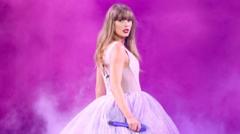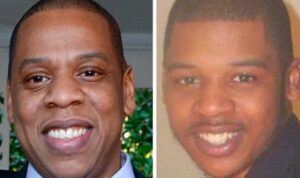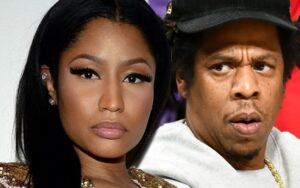Dua Lipa has been cleared of copyright infringement accusations regarding her popular song "Levitating," after a judge deemed the similarities to previous works too generic to merit legal protection.
Dua Lipa Triumphs in Copyright Case Over "Levitating"

Dua Lipa Triumphs in Copyright Case Over "Levitating"
The pop star successfully defends her hit against plagiarism claims.
Dua Lipa has emerged victorious in a copyright lawsuit regarding her hit song "Levitating," which has been a significant success worldwide. The case, filed in 2022 by songwriters L. Russell Brown and Sandy Linzer, accused Lipa of copying elements from their 1979 track "Wiggle and Giggle All Night" and the 1980 song "Don Diablo."
On Thursday, US Judge Katherine Polk Failla ruled that the similarities claimed by Brown and Linzer were merely generic and included elements of music that are not protected by copyright laws. Notably, these elements have been utilized in works by classical figures like Mozart, as well as iconic artists including Gilbert and Sullivan and the Bee Gees, particularly in their famous hit "Stayin' Alive."
This is not the first time Lipa has faced legal challenges over "Levitating." Previously, she was sued by the Florida reggae group Artikal Sound System, who argued that the chorus of her song was derivative of their track "Live Your Life." However, that lawsuit was dismissed earlier this year due to a lack of evidence that Lipa had access to Artikal Sound System's work, a critical requirement for a successful plagiarism claim.
Despite these victories, Lipa is still grappling with a third lawsuit from Bosko Kante, a featured artist on "Levitating," who claims his contributions to remixes of the track were used without his consent. Kante seeks at least $2 million in damages, in addition to profits that could exceed $20 million.
The core of Brown and Linzer's allegations centered on the melody of "Levitating," particularly the opening lines where Lipa invites listeners to join her on a whimsical journey. Judge Failla concluded that these sections are too commonplace to warrant legal protection, stating that to assert otherwise would inhibit the evolution of music within that genre.
Coincidentally, the ruling was issued on the fifth anniversary of "Levitating's" initial release as part of Lipa's acclaimed "Future Nostalgia" album. In response, the plaintiffs expressed their intention to appeal the decision, indicating an ongoing debate in the music industry regarding copyright and creativity.
On Thursday, US Judge Katherine Polk Failla ruled that the similarities claimed by Brown and Linzer were merely generic and included elements of music that are not protected by copyright laws. Notably, these elements have been utilized in works by classical figures like Mozart, as well as iconic artists including Gilbert and Sullivan and the Bee Gees, particularly in their famous hit "Stayin' Alive."
This is not the first time Lipa has faced legal challenges over "Levitating." Previously, she was sued by the Florida reggae group Artikal Sound System, who argued that the chorus of her song was derivative of their track "Live Your Life." However, that lawsuit was dismissed earlier this year due to a lack of evidence that Lipa had access to Artikal Sound System's work, a critical requirement for a successful plagiarism claim.
Despite these victories, Lipa is still grappling with a third lawsuit from Bosko Kante, a featured artist on "Levitating," who claims his contributions to remixes of the track were used without his consent. Kante seeks at least $2 million in damages, in addition to profits that could exceed $20 million.
The core of Brown and Linzer's allegations centered on the melody of "Levitating," particularly the opening lines where Lipa invites listeners to join her on a whimsical journey. Judge Failla concluded that these sections are too commonplace to warrant legal protection, stating that to assert otherwise would inhibit the evolution of music within that genre.
Coincidentally, the ruling was issued on the fifth anniversary of "Levitating's" initial release as part of Lipa's acclaimed "Future Nostalgia" album. In response, the plaintiffs expressed their intention to appeal the decision, indicating an ongoing debate in the music industry regarding copyright and creativity.






















